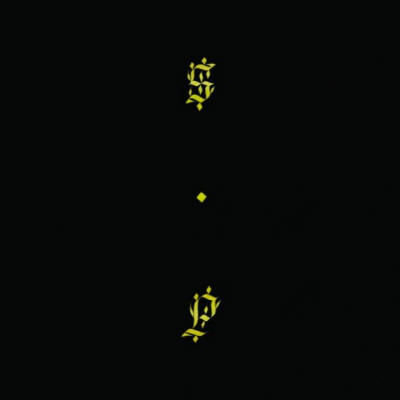|
You are reading the older HTML site
Positive Feedback ISSUE 56
Shabbaz Palaces,
Black Up
Sub Pop Hip Hop and EDM (electronic dance music) have undergone serious transformations in the last few years (especially the last five or so). As the result they've been overly classified, thereby overly fragmented. It's in our nature to try and label things (in this case I'm referring to art) so that we may more easily explain them; pigeon-hole them, and create identifications. Sometimes I feel these actions only detract from the mysticism in the creative process itself; that things simply are what they are. Nonetheless, we end up with countless genres and sub-genres (house, tech-house, electro-house, dub-step, hip hop, rap, gangsta rap, East and West Coast rap, etc.). Unfortunately, this can happen to any genre that continues to evolve. As artists strive to find new sonic territory, armed with new beats, melodies and rhythms to juxtapose (not to mention new technology, which opens doors never seen or heard before) different voices emerge as the result of this exploration. It's the artists that do not concern themselves with the various labels and fragmentations that tend to stand out. Shabbaz Palaces new album: Black Up is a perfect example of the exploratory spirit that makes hip hop so exciting to listen to and also difficult to quantify. I guess, in a way, I have also been trying to quantify the sounds of Shabbaz Palaces. It is my job here after all: To try and paint a literary picture of this music that has found a special place in my heart over the last couple of weeks. This time it's been difficult, and I think perhaps that is a compliment. I've been more concerned with listening than classifying. I find this record perfect for the car and for at-home listening. Their beats are twisted, the basslines slamming, and the production feels refreshingly new and provocative. This provides the perfect sonic backdrop for Ishmael Butler's smooth lyrical flow. His words are like butter. Those familiar with Digable Planets (his former band) will understand this characteristic—it was the musical staple that helped raise the awareness of their name so fast many years ago (as well as numerous licensing deals, resulting in spots that sliced and diced their music into unfortunate commercial fodder). Black Up sounds like an answer to that perhaps unwanted transition from underground hip hop band to commercial foghorn. Synth pads float next to grimy beats and plush choruses (a word used perfectly in the lyrics of the album—so I thought I'd steal it for this review). This music just feels like now, and that may sound like a silly Zen Buddhist cop-out, but it is the first thing that comes to mind when I'm listening to this record. It's like a jolting collision of James Blake, Odd Future, and classic Boogie Down Productions and the native tongue movement of the 90's. I've stated this elsewhere (I believe on Audioevo.org) but I think it describes their vibe so well I cannot come up with something to supersede it, and so I am going to repeat myself for the sake of trying to describe this mesmerizing musical effort: This is hip hop for the disenfranchised. There is always a point in every style of music where the envelope is not only pushed, but tore wide open. Shabbaz Palaces, to my ears, have done so on Black Up. If you are into hip hop culture (and it's not merely a genre—it's a way of life, those who live it understand) you need to check this album out, and do it soon.
|

